Strona główna
Life After Service. Veterans - Hidden Potential and Valuable Experience?
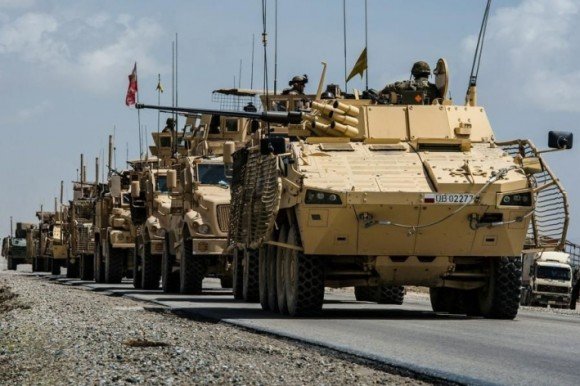
The know-how, experience, and expertise that the veterans possess, all remain important within the context of the Polish economy. The veterans themselves, meanwhile, are gradually finding their own space on the Polish job market. However, the whole system needs to be perfected, so that it is possible to put the potential offered by soldiers and officers to better use, also thanks to support and experience provided by our allies - this is the conclusion reached by the experts invited to participate in an online seminar organized by Defence24.pl and InfoSecurity24.pl.
The skillset that the veterans possess, as well as the benefits for the state and employers, the experience gathered by the US allies in the area of reconversion, are some of the matters discussed by the experts, during the debate that the Defence24 Group organized.
Seminar Experts
The following experts accepted the invitation to participate in the debate: Kamila Gralik, Deputy Head of the Social Matters Department at the Polish Ministry of Defence; Brig. general. ret. Paweł Pruszyński, former Deputy Head at the Internal Security Agency; Col. ret. Piotr Gąstał, former GROM Unit commander; and Major ret. Mariusz Kordowski, defence and security expert. The meeting has been organized thanks to the support provided by the Overseas Operations Veteran Centre (Centrum Weterana Działań Poza Granicami Państwa), and the US-based Raytheon Missiles & Defense company. The partners were represented by Col. Szczepan Głuszczak - Director at the Veteran Centre, and Col. ret. Joseph P. DeAntona, Iraq and Afghanistan Veteran and Vice President for Requirements and Capabilities for Raytheon’s Land Warfare & Air Defense Mission Area.
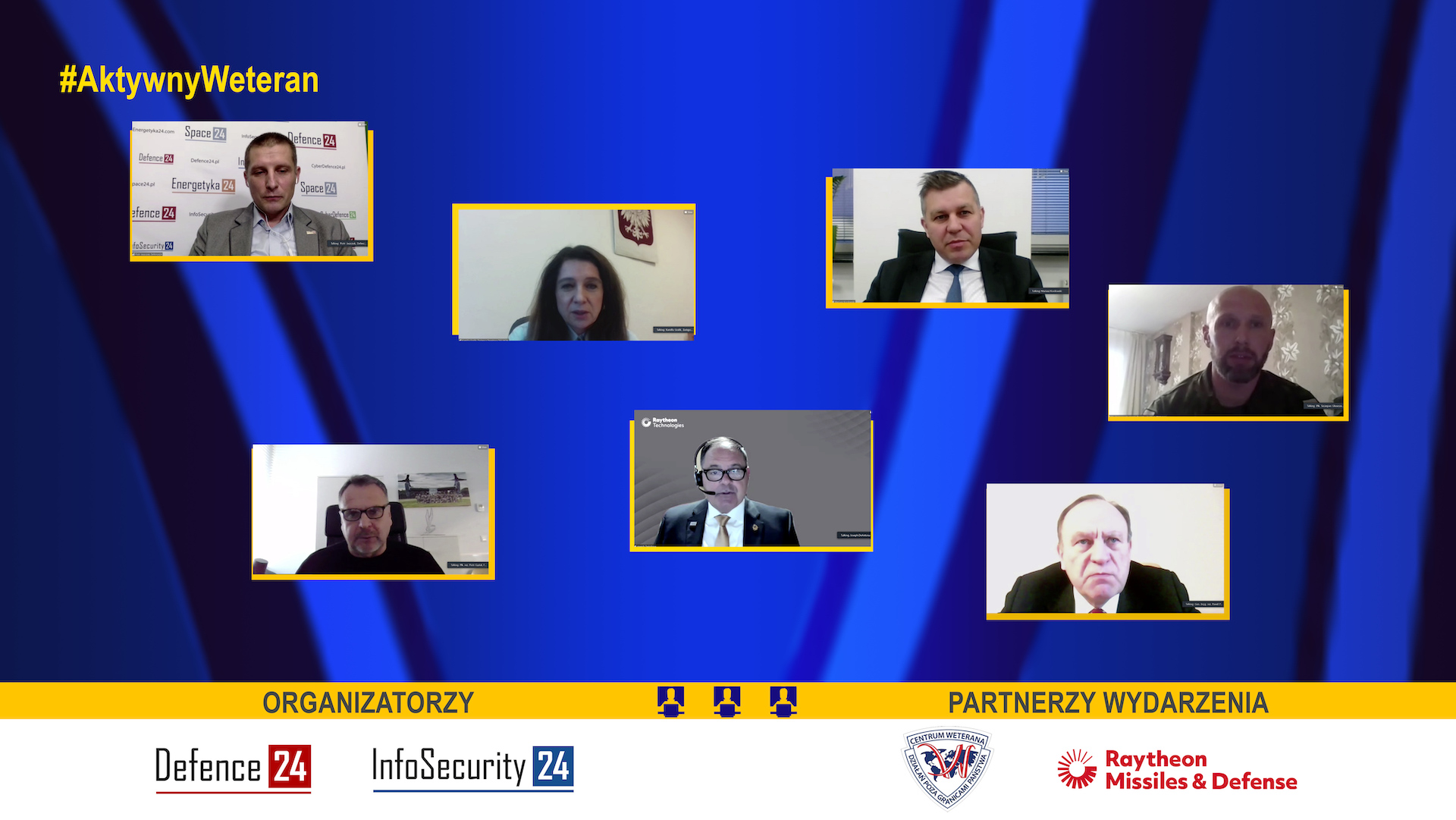
Discussion: Veterans and the Potential They Have
The meeting and discussion were preceded by a speech by Piotr Małecki, President of the Management Board at the Defence24 Group. Małecki was emphasizing the importance of the support provided to the veterans - officers and soldiers who have finished their service, also pointing out the relevance of using the potential available at hand.
We place a great emphasis, as Defence24 Group, on cooperation with the veterans. Yet again, here we are dealing with the problem associated with the use of the potential they have, on the Polish market. The state structures seem to overlook that potential, not utilizing it completely. I think that the industry fails to notice fully, how giant the potential is, that is available in case of persons finishing their military service. Some positive examples can be found, of persons finishing their military service finding their place, on the job market. More and more cases as such become noticeable. We do hope that thanks to activities such as the ones undertaken by the Veteran Center we will be able to create a system, and a certain trend resulting on the grounds of the need to employ persons with broad experience gathered in the military, uniformed services, or in the intelligence agencies. At Defence24 we eagerly work with reserve officers - they work as our employees, cooperate with us, create specialist articles, or, recently, even books.
The first portion of the discussion covered the degree of interest that the employers and state entities may express towards creating career opportunities for the veterans.
Col. Głuszczak was repeatedly stressing the fact that it remains quite difficult to refer to the matter in question. No broad research is conducted, within the scope of perception of the skills that veterans may have, among the employers.
From my personal perspective, as we remain in touch with veterans, it seems that it’s not that bad. It is not as bad as the title of our today’s meeting may suggest - “the unused potential”.
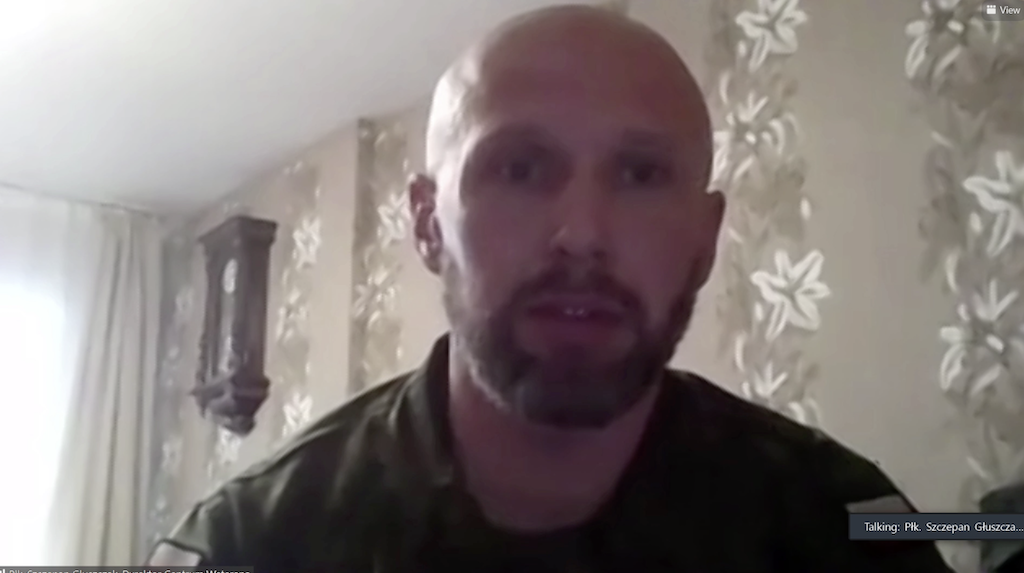
The Director at the Overseas Operations Veteran Centre did stress the fact that the thesis suggesting that the veterans’ potential is not used to its fullest scope can be rejected, based on the careers of the veterans attending the seminar organized by Defence24.
I think that the potential mentioned above is being noticed, also because of the fact that the Veterans are talked about more often and in a broader scope, thus the employers’ attention is gained, with regard to that group. These people have a certain experience at hand, with that experience being appreciated on the job market. There are some businesses too, that are proud of the fact that they employ veterans, or seek experts and specialists solely in that social circle, either security, electronics, or physical security experts.
Then, Gralik outlined the activities that the workforce readiness centers carry out within the framework of reconversion, emphasizing the skills that distinguish the troops on the civil job market.
I would like to stress that the entrepreneurs, year by year, are becoming increasingly more eager to employ ex-military employees, who are veterans, and not only are the veterans a valuable resource on the job market. This is the result of our observation and research that we have carried out, and we see companies reaching out to the workforce readiness centers directly, asking whether there is any suitable workforce available, given the required experience, loyalty, diligence, and all other skills and qualifications that they possess. (...) Perceiving the soldiers as solid employees will bring benefits in the future. And all of the information campaigns taking place via the Ministry, or via the workforce readiness centers at the job fair events, through direct engagement of employers (with agreements signed with the specific businesses), do yield positive results.
Gralik noted that the soldiers leaving the Armed Forces are being prepared better, to seek new careers.
More, and more often the soldiers are focused on a specific job or even a specific employer. The tools we have, such as the requalification, that allows the soldiers to graduate with a specific major, and internships where the employer could get to know the soldiers better, and where we could see whether the soldier would be interested in working on a position at the given business, and another way round, whether the employer would be interested in employing the soldier - all together make it possible to make use of the available potential.
The Deputy Director at the Social Matters Department also referred to the potential that the soldiers could have to work within the state administration organs.
I don’t know how does it look in the whole of the public administration, but I can say that when it comes to employing the former soldiers as employees at the Polish MoD, then the group employed is quite expansive, with 7,500 employees in total being ex-soldiers, and veterans and their potential is still being used to meet the requirements of the military.
Then, the experts and attendees got acquainted with the US experience in the area of reconversion and using the potential that the former members of the military have, after their service. Col. (ret) Joseph P. DeAntona, Vice President for Requirements and Capabilities for Raytheon’s Land Warfare & Air Defense Mission Area, speaking from Dallas, TX, outlined his own, personal experience. He said that the defense sector in the US, and Raytheon Missiles & Defense where DeAntona currently works, have been partnering up with the US Army from the very beginning. From the very start of his military career, he recalled, he has been working with Raytheon’s engineers, also exhibiting a high degree of trust towards the company’s systems and solutions delivered to the Army. The company did support important events and projects - both for DeAntona, as well as for his troops.
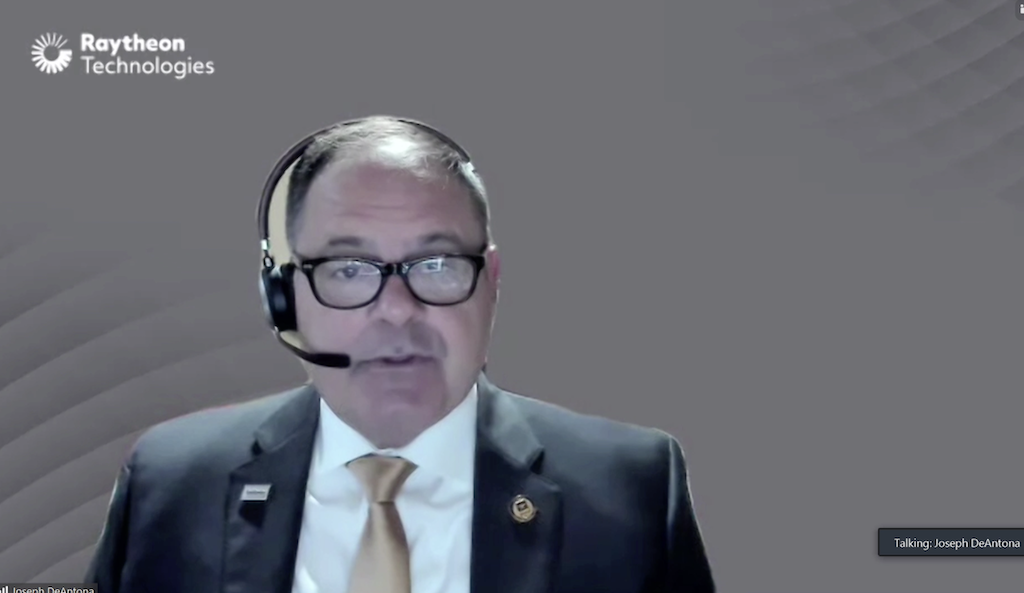
DeAntona did stress the fact that he was staying in touch with Raytheon over the course of his military career of 3 decades, sharing his experience with the company’s products. The business did support him, both during his service, as well as after the retirement. Then, DeAntona was given a chance to find an attractive job, at Raytheon. He said that Raytheon does rely on veterans to a great extent, with them working for the company after they finish their military service. The veterans act in a role that is somewhat similar to that of a translator. The engineers, the business, and the customer, and the user, all speak different “languages”.
DeAntona stresses the vital role the veterans play in communication between the industry and the users. The broad employment of Veterans made it possible for Raytheon to take the leading position on the global defence market, DeAntona said.
He added that the company is very much present in Poland, employing more than 8 thousand employees across the group with United Technologies. Raytheon is also a participant in the key projects pursued by the Polish military, such as Wisła, Sona, and Narew. DeAntona stressed the role of the experts recruited in Poland, as they facilitate the communications between the user, the business, and the engineers. Raytheon’s representative suggested that the methodology adopted in Poland is very much reminiscent of the one used in the States.
Another aspect of responsibility that is covered with the Polish community in mind is the financial and organizational support Raytheon provides to the families that lost their loved ones during foreign military deployments, including the “Memory and Future Association” (Stowarzyszenie Pamięć i Przyszłość). DeAntona said that psychological support is offered, along with recreation, integration, and educational support programs.
Col. (ret) Piotr Gąstał also broadly described the specific nature of the careers of the special operations forces members, along with their skillsets. Gąstał is a former commander of the Polish GROM special forces unit.
I see that the veterans are not left all alone, and that they find a place where they belong, that the reconversion process does work, and that anybody can choose any course they like.The Special Operations units use the process quite intensely - I have been using it as well - they are not left out alone, without any help. We need to remember about some unique traits the special operators may have. These are often a curse for those soldiers. Why? Firearms skills, tactical skills, are not needed on the civil job market, and these make it quite difficult to find a job in a civil profession. This is why it is important to gain new qualifications. Many soldiers who have left the military service behind, start businesses of their own, creating training centres dealing with firearms or tactical training for the civilians, but those soldiers also train our state services. WOT (Territorial Defence Component) of the Polish military is a good example here, utilizing the potential of the former special operators to train the newly formed Territorial Defence brigades all around Poland. (...) It is a group of several former special forces operators working as instructors, hailing either from the Grom unit, or from the Commando Regiment, or from Formoza - they conduct training as such all around Poland, on a weekly basis. This, for me, is a very good example of positive use of the skillset that this group has.
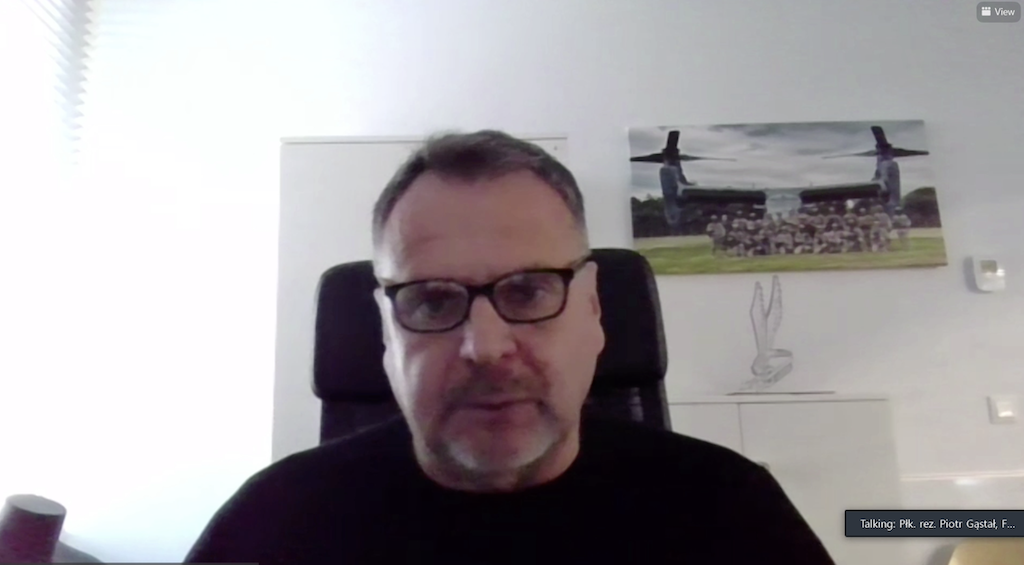
Gąstał also said that the special operations forces also include other specialized groups that can fit the civil job market well.
Communications specialists, logistics specialists, with their deployment experiences, have a broad organizational skillset and they can secure activities that are also crucial in the civil context. Most of the persons I know get jobs at businesses with high salaries, that also deliver equipment to the military. Many specialist soldiers have also established businesses of their own.
Gąstał noted that the injured veterans tend to face the greatest challenges on the job market, pointing that the Polish Ministry of Defence, the Overseas Operations Veteran Centre, and the NGOs have an important mission ahead of them, tied to the rendering of support for the veterans, also in the area of their future professional careers. Gąstał added that he does not really worry about the Special Forces operators, as they are trained to face challenging conditions.
Former intelligence services officers are another essential group. Its potential shall be utilized to bring benefit to the Polish state, Brig. general. ret. Paweł Pruszyński, former Deputy Head of the Internal Security Agency (ABW) mentioned.
I had a dream today. I had a beautiful dream that I am living in a country where the officers who have been working for the good of their homeland for years, are respected. Where their acquis is appreciated, without ungrounded undermining of the reputation of theirs. Their loyalty and commitment are valued, their experience, knowledge, and skills do not go to waste. There is a drive to make it possible for them and to make them willing to use these predispositions in the state administration organs and in economic entities tied to the national sectors, at the state level, and at the private level as well. They work as consultants, experts, and advisers in activities between the state, and the business. They conduct training, work as lecturers, outlining the threats and patterns that can be adopted to protect the basic national, social, and economic interest. This is what they have been dealing with. But the dream has gone by, and scarily enough, it was just a dream. Dreams as such do come true, however. There are some states where this dream has become reality.
Pruszyński listed several allied nations here: the US, the UK, Germany, and Israel. There, the potential available to the former intelligence officers is being utilized fully.
In these states, virtually any retired officer gets a job offer, as a lecturer at a training center, civil consultant, or as an expert.
I am really looking forward to see the system that has been established in the military work, it brings my hopes up, Pruszyński noted. In the Polish intelligence services, this does not work so well, he summarized.
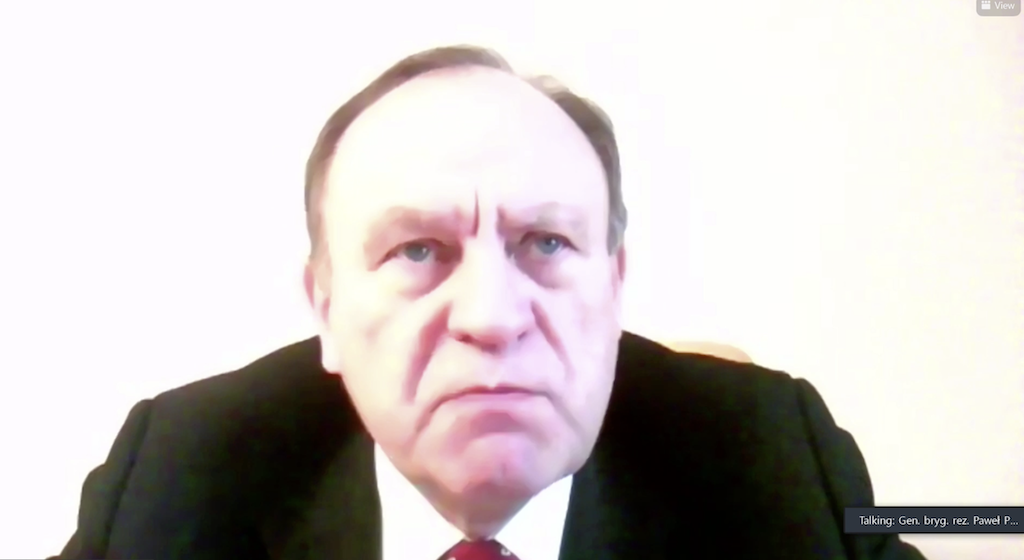
Most of the intelligence officers in the countries listed by Pruszynski continue their careers in a business setting, where they work as consultants, advisers, or experts, dealing with security, and cybersecurity matters. However, protection of information that plays key importance for the business is not appreciated enough in Poland, Pruszyński noted, indicating that foreign intelligence services pose a threat, with information leaks, and the role and meaning that intelligence officers may play in a business setting. Pruszyński noted that several months before they retire, the officers, in the afore-listed countries, receive at least several job offers. And they may also receive specialist training before they end their service, which would prepare them for their new careers.
So? So it can be so. This refers to reality, not to a dream. Unfortunately, here it often happens otherwise. And the reality? He was working back then - and some push and pull conflicts emerge often.
The General said that this should not refer to the officers at the lower levels, as they have devoted their best years to serve Poland. Let’s use their potential, as advisers in business and administration, Pruszyński suggested, also saying that the officers want to be useful, as they do not perceive their job exclusively through the lens of finances.
When asked about the consequences of the special operators being left alone, after they leave the military, Col. Gąstał stressed that he is not aware of any case of the soldiers becoming criminals, sharing their skillsets with organized crime organizations.
The work ethics are deeply rooted - I am not aware of any case as such. And the skillset they have is dangerous, that’s for sure.
Piotr Gąstał added that the former soldiers becoming military instructors is a rare scenario here. It is not a planned process.
The possibilities available to soldiers who have been injured, when it comes to continued service, have been outlined by Gralik and Głuszczak.
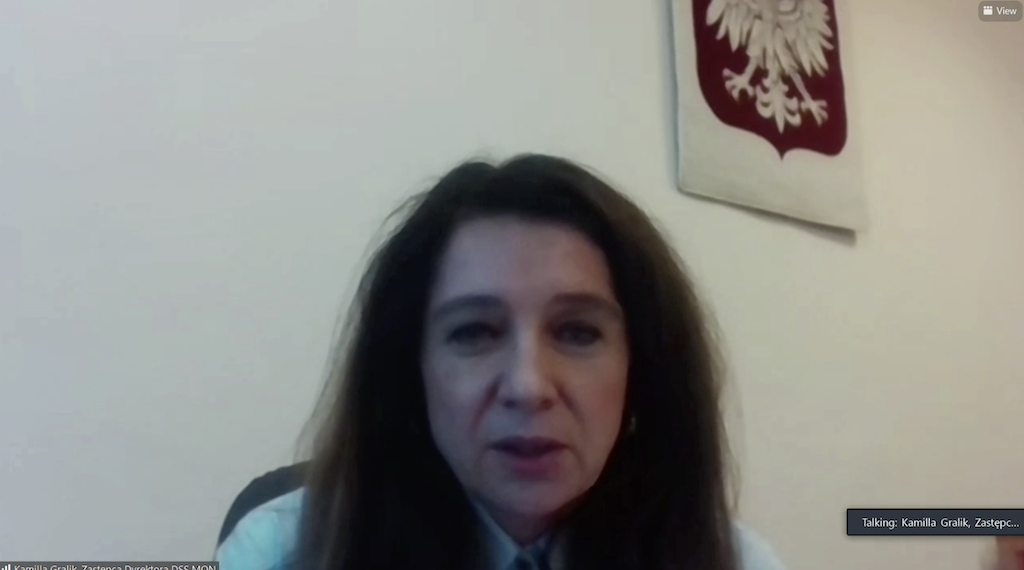
Contrary to the common opinion, the injured are not left alone - Gralik noted.
The system that has been established, within more than 8 years when the relevant legal act has been in force, shows that the system is comprehensive, covering all domains, from healthcare to employment, or continued service.
Our data suggest that all of the injured veterans that actually are willing to work, or remain in service, get employed in the end, Gralik stressed.
I have not heard about any case of an injured veteran who asked us for help, who did not find a job, or who did not get support from us, in finding employment outside the service.
Thanks to the changes of the legal regulations, 90 injured soldiers remain in service, at the positions referred to as “able with limitations”. The injured veterans are the preferred choice in case of employment at the military units, in the Armed Forces, and at entities subordinated to the Polish Ministry of Defence. The credentials within the scope of reconversion, in case of the injured veterans, have been extended, with the right to receive support within the scope of education - post-graduate degrees, MA degree, BA/MA degree, were all listed by Gralik.
Col. Głuszczak also referred to pension and retirement options available to the injured veterans.
I, myself, work as a Director at an entity subordinated to the Polish Ministry of Defence, and I employ soldiers and military employees, injured veterans included. I have adopted a rule assuming that Veterans come first when it comes to recruitment, Głuszczak stressed. I have a great deal of respect for the war, and deployment experience. If we are to help the veterans, then they would be more inclined to trust a person just like him, who has gone through the same - Szczepan Głuszczak noted.
Thus, I have four veterans employed at the Veteran Center, four injured veterans, including two with a major disability, beyond several percent.
The Director at the Centre has presented the example of the soldiers of the 17th “Wielkopolska” Mechanized Brigade operating the Rosomak APC, who now work at the company manufacturing the aforesaid vehicles. He did stress, that stories as such are not a rarity among the veterans.
More than 800 adjustments made to the Rosomak design, with 200 being very serious, stem from the veteran experiences, with those veterans working with the platform, and on the platform, together with engineers and defence industry representatives. This American model has been adopted in Poland, and it works well. It is worth taking steps that would lead to more veterans being employed in the defenCe industry, building their network, and gathering experience during their service. People need to be made aware, as to how they could position themselves on the civil market, create their own personal branding, and engage in self-improvement.
Major (ret.) Mariusz Kordowski also described the practical aspects of employing veterans. Kordowski currently works as a defence expert.
After leaving the military I’ve had a chance to work in the defence industry, at a foundation, and to pursue my own social projects and journalistic endeavors. I do agree with many points made here, but the qualifications we have are decisive for us finding our own spot on the job market. Here we have two groups - persons whose qualifications can be found in the civil environment, and persons whose skillsets are unique for the military circles.
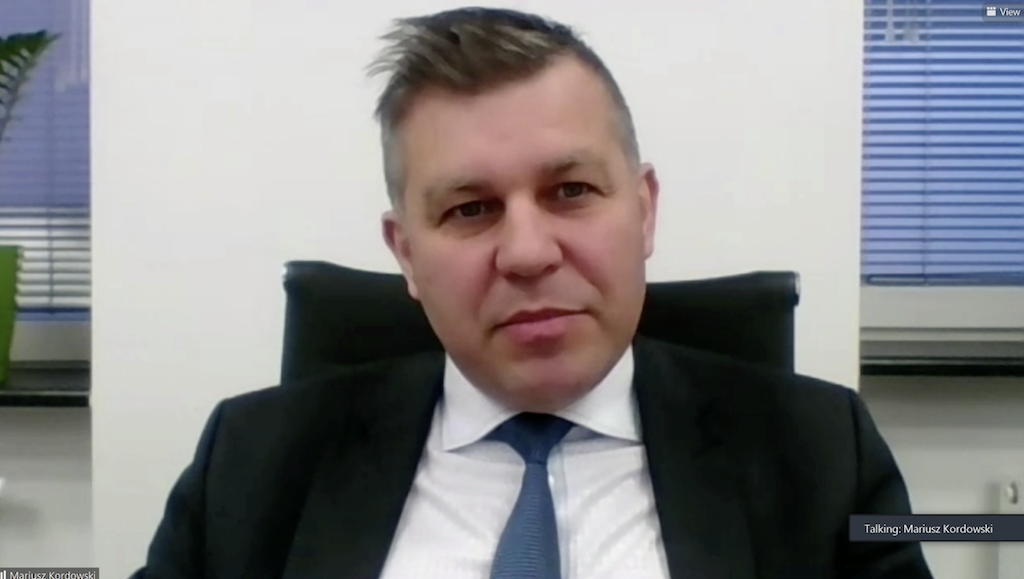
Kordowski stated that the former group will not have a lot of problems in finding employment. The latter group could face a certain challenge - here conversion is very important. They shall be supported in their jobseeking process. Kordowski emphasized the value of recommendation issued by persons who have covered a similar path, and now work in the defence industry or have changed their qualifications. Establishing a certain level of trust and position in a team is another important aspect here.
The matter of the soldiers returning to active service, after several years of activity in the civil environment, has also been brought up. Głuszczak did confirm that this trend is noticeable. The returns create an opportunity to utilize the potential and make use of the training provided to those persons all over again. “In my opinion, this is a good practice that needs to be implemented. The recruitment procedures, meanwhile, have been simplified”, he noted. Pruszyński indicated that the state administration could greatly benefit from the experience of soldiers and officers, especially in the bodies responsible for crisis management and security.
Closing Summary
The experts, summarizing the meeting, have been emphasizing the fact that the discussion would be useful to boost the veterans’ (soldiers and officers) PR, portraying them as creative human beings ready to face any challenge. The personal recommendations have been presented as an element that constitutes a major element of support for the veterans seeking employment after finishing their military service. Both the US experience, as well as the experience gathered in Poland show that internships organized by the potential future employers make it possible for those employers to realize that a veteran is a good, reliable employee who also has internal knowledge of the given organization at the moment of signing the work contract.
Polish Ministry of Defence sends around 2 thousand soldiers to participate in internships as such, as Kamila Gralik suggested. Gralik also indicated the agreements that have been and are signed by the Social Matters Department of the MoD and the workforce transfer entities with the defence industry, airports, shipyards, transport sector businesses, and other entities, allowing for job offer transfers, and recommendation transfers, with relevant candidates being pitched to work in narrow, yet specialized fields. This area has been listed as a priority, alongside the information exchange and recommendations. Both in the US, as well as in Poland, any person who has his/her military service behind, still is viewed as an officer/soldier, ready to return to service, should the situation require him/her to do so. This is an obligation that is an integral part of the unique work ethos associated with these professions.
Furthermore, DeAntona proposed that Gralik and the MoD continue the dialogue to explore the options within the scope of making use of the programs offered by the US side, as the relationship involving the Raytheon Missiles & Defense company is becoming stronger, along with the Polish defence procurement programs involving the US industry. Col. DeAntona stated that the US side would be grateful for opportunities to work together in the future.
Gąstał noted that there is a great need to separate the politics and the matters related to defence industry management, so that the management staff in the domain is adequately prepared, experienced and qualified, based on past military service. This would certainly have a beneficial impact on the management efficacy in the defence industry.
Gralik noted that matters and proposals discussed during the seminar would be analyzed at the Department for Social Matters, and the system would be perfected. Recommendations for the future employers have been viewed as one of the important aspects here - especially with those recommendations being issued by the former commanders, referring to the soldiers with flawless track records.
Głuszczak, meanwhile, stressed the importance of making the soldiers aware, from the very start of their military service, that outside of the military they still can develop their careers. This would encourage the soldiers to get new qualifications and engage in personal development. Szczepan Głuszczak was also placing a great emphasis on informing future employers, on the benefits they may gain if they decide to employ veterans.
